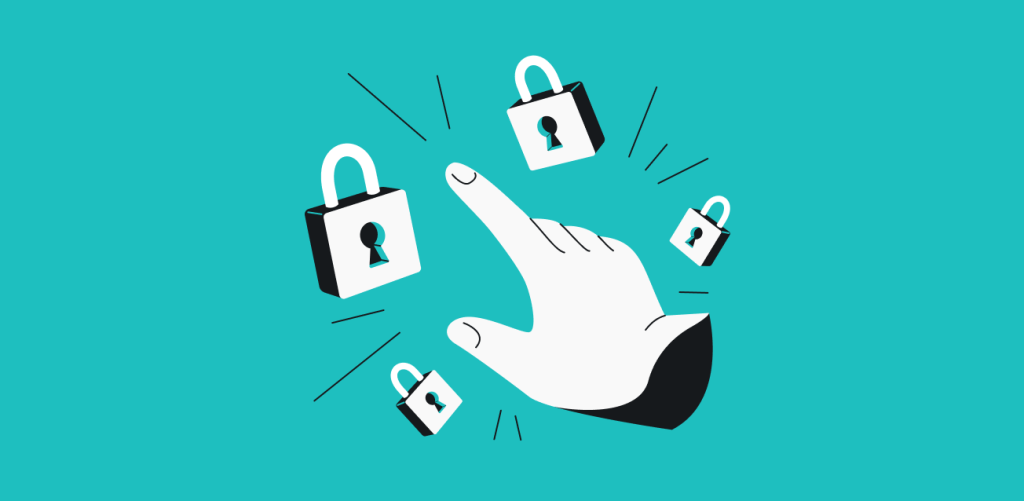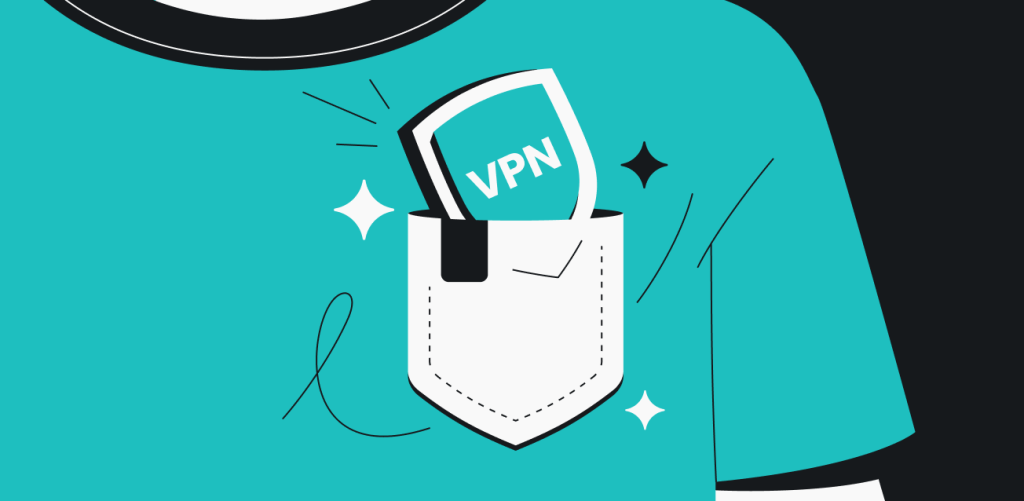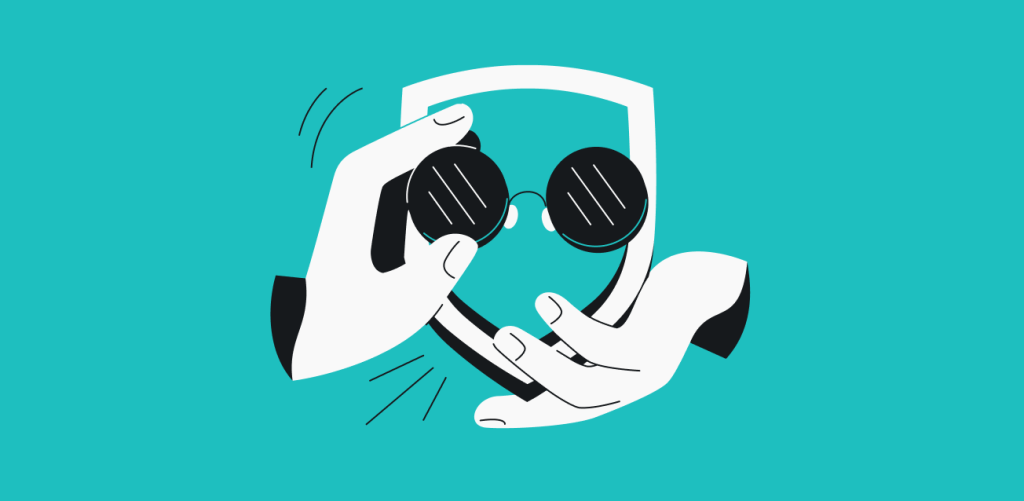
A reliable VPN (Virtual Private Network) is the best VPN for home use. Granted, there are more criteria to look at when choosing the one for your humble abode. That’s why this article will go over some of the best options you have when choosing a VPN for your home. Naturally, I’ll try to make the case that Surfshark is the right choice.
Table of contents
How does a VPN protect your home network?
Changing your location
The first way that a VPN can protect your home network is by changing your location online. When a VPN connection is established, your public-facing IP (Internet Protocol) address changes to that of the VPN server. IP addresses can be used to pinpoint your location in very general terms. Most of the time, it’s used to annoy you with localized ads, but it’s still not the safest bit of data to just leave floating on the internet.
Keeping your IP safe
Your IP address is imprinted on every action you take online. So, if anyone on your home network orders a pair of shoes, checks maps for shoe stores, or leaves scathing comments on a TrustPilot page of a local shoe shop, all those actions are branded with your IP. But if you use VPN services, it’s their IP that gets left behind.
Making your data unreadable (to thieves)
Another thing that a VPN does is encrypt your data. When a VPN tunnel is established, all the data going through it is scrambled. This means that anyone eavesdropping on your connection won’t be able to see what you’re doing. This means both internet service providers (ISPs) and all sorts of government bodies.
Plus, the combination of encryption and connecting to a VPN server allows you to access blocked websites. Whether the ISP or a despotic government imposes the blocks, the combination of methods in the way a VPN works ensures access and privacy.
Securing any online device
Now, the easiest way for a VPN to protect your home network is to have the VPN installed on your router. The next best thing is a VPN that can be installed on every networked device you own; in this case, look for platform compatibility and unlimited installs to run all those instances simultaneously.
Discovering the best VPN service for home
Here are how some of the best VPN providers in the market stack up against Surfshark when it comes to suitability for your home. We also have a more in depth comparison.
Surfshark vs. NordVPN
Surfshark and NordVPN are both good VPNs (and, full disclosure, belong to the same parent company). However, they have their points of difference — like server locations. Surfshark has more servers in Asia, Africa, and South America, and NordVPN has more in North America and Europe. And since you’re likely interested in a home VPN that connects to a server in your country, then your choice might already be made for you.
Another thing to consider is how many devices a single subscription can offer. NordVPN comes with six simultaneous connections, while Surfshark offers unlimited ones.
Surfshark vs. ExpressVPN
Surfshark and ExpressVPN are leading virtual private networks — and with good reason. They offer comparable capabilities across the board. However, Surfshark offers some additional spice: ad blocker and cookie pop-up blocker with basic plans, as well as Antivirus and data leak alerts with the premium ones.
Surfshark is also cheaper — with a $1.99/month basic plan compared to the $8.32/month with ExpressVPN.
Surfshark vs. CyberGhost
When comparing CyberGhost to Surfshark for the role of your home VPN, CyberGhost offers a greater number of servers but covers fewer locations. This means that if there is a server at your desired location, it’s less likely to be experiencing high traffic, but the chances of having that server in the first place aren’t as good.
CyberGhost is also cheaper than Surfshark at $2.19/month vs. Surfshark’s $1.99/month, and it also offers a slightly longer money-back guarantee. However, that’s a minimal difference in price when you account for the fact that CyberGhost is missing such privacy and security features like obfuscated servers or a double VPN.
Surfshark vs. PIA
Private Internet Access (PIA) is another VPN provider with more servers than Surfshark, but Surfshark covers more server locations. So the Surfshark vs. PIA comparison really depends on where your home is or what VPN server would best match your needs.
PIA is slightly cheaper than Surfshark at $2.03/month for a 3-year plan. Meanwhile, Surfshark costs $1.99/month for two years. Surfshark comes with double VPN features (and GPS spoofing, but that’s a feature more pertinent to mobile VPN users).
Surfshark vs. IPVanish
Surfshark and IPVanish both offer unlimited simultaneous connections, which is a great boon if you’re not planning to put a VPN on your router. And while Surfshark offers more server locations, IPVanish has more servers in the Americas, which may be pertinent if your home is somewhere in, say, the Americas.
Both VPNs offer great security and privacy features like kill switch, split tunneling, and obfuscated servers. Yet Surfshark goes further with a double VPN, and an ad blocker. Surfshark is also slightly cheaper, at $1.99/month, compared to IPVanish’s $2.99/month.
Surfshark vs. ProtonVPN
ProtonVPN allows ten simultaneous connections — not as much as Surfshark’s coverage for unlimited devices, but still a good number for those wanting to secure their entire home. Both VPNs are similar in the security and privacy options they provide.
When it comes to Surfshark vs. ProtonVPN, things don’t look that great for the latter when servers and price are discussed. It offers fewer servers in fewer locations than Surfshark but costs nearly twice as much at $4.99/month.
Surfshark vs. Mullvad
Mullvad is a VPN for a home that cares about anonymity and privacy more than literally any other feature. To create an account, you don’t need to provide any personal details, not even an email, and you pay them by mailing cash to their HQ.
However, that’s the extent of the benefits it can offer when comparing Mullvad with Surfshark. Surfshark, meanwhile, has more servers, more industry-standard (or even leading) features, and live customer support.
How to choose the best home VPN
The best home VPN will have a combination of desirable features like:
- Server location count: more servers — bigger odds of one being in or close to your town;
- Server count: more servers means less server congestion;
- Simultaneous connection count: how many devices can run a VPN on a single account;
- Price: people generally prefer to save money.
Surfshark | NordVPN | ExpressVPN | CyberGhost | PIA | IPVanish | ProtonVPN | Mullvad | |
|---|---|---|---|---|---|---|---|---|
Devices | ∞ | 6 | 5 | 7 | 10 | ∞ | 10 | 5 |
Server countries | 100 | 60 | 95 | 100 | 84 | 75 | 67 | 43 |
Servers | 4,500+ | 5000+ | 3000+ | 7000+ | 10,000+ | 1900+ | 2600+ | 650+ |
Price | $1.99 | $3.79 | $8.32 | $2.19 | $2.03 | $2.99 | $4.99 | $5.44 |
The data in the table is accurate as of August 21, 2023, and is subject to change.
In conclusion: get the right VPN for your home
Getting the right VPN for your home is actually easier than it sounds. You simply have to know what you’re looking for in a virtual private network. Hopefully, this article covered all the basics you’d want to know. And maybe it convinced you to choose Surfshark…?
FAQ
What VPN is the best VPN for a home router?
The best VPN for a home router is the one that offers the most support for installing it on a router — or comes on a router already pre-flashed.
Is it worth using a VPN at home?
By using a VPN at home, you:
- Hide your home’s IP address online;
- Encrypt all the data your home network sends or receives;
- Prevent any bandwidth throttling by the ISP;
- Bypass censorship.
Seems worth it to me!
Is there a whole home VPN?
Any VPN can be a “whole home” VPN if you install it on your router. Now, whether the VPN developer has made it possible to do this or whether your router supports a VPN is another question.
What is the best free home VPN?
There is no best free home VPN, as free VPN services are less trustworthy and less powerful than premium VPNs. And if you don’t care about such concerns, free VPNs, as a rule, have fewer servers and server locations, as well as capped speeds and data caps that are supposed to convince you to shell out for the premium version. Reputable VPN providers are paid up-front and don’t have to resort to such underhanded practices.




